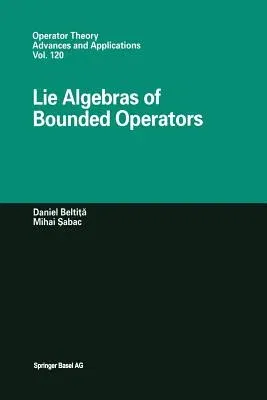Daniel Beltita
(Author)Lie Algebras of Bounded Operators (Softcover Reprint of the Original 1st 2001)Paperback - Softcover Reprint of the Original 1st 2001, 23 October 2012

Qty
1
Turbo
Ships in 2 - 3 days
In Stock
Free Delivery
Cash on Delivery
15 Days
Free Returns
Secure Checkout
Part of Series
Operator Theory: Advances and Applications
Print Length
219 pages
Language
English
Publisher
Birkhauser
Date Published
23 Oct 2012
ISBN-10
3034895208
ISBN-13
9783034895200
Description
Product Details
Authors:
Book Edition:
Softcover Reprint of the Original 1st 2001
Book Format:
Paperback
Country of Origin:
NL
Date Published:
23 October 2012
Dimensions:
23.39 x
15.6 x
1.24 cm
ISBN-10:
3034895208
ISBN-13:
9783034895200
Language:
English
Location:
Basel
Pages:
219
Publisher:
Weight:
331.12 gm

